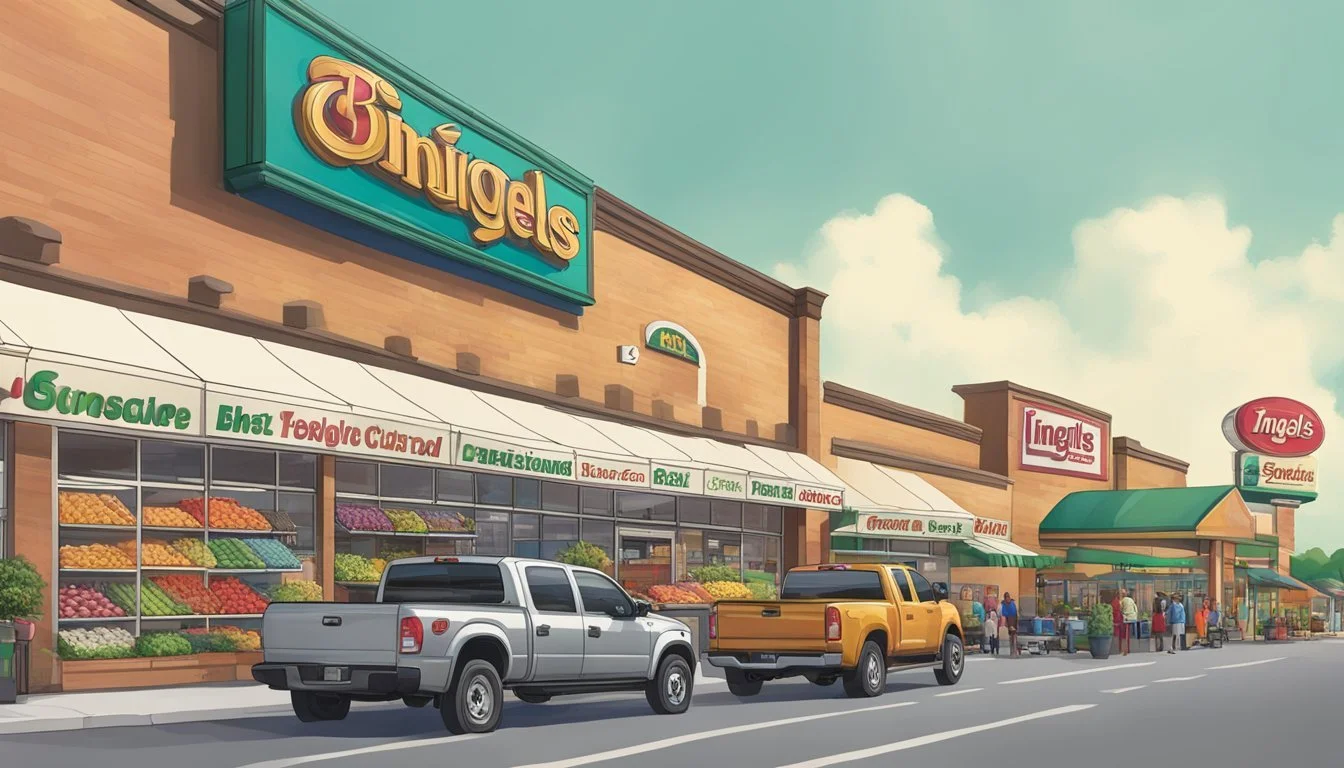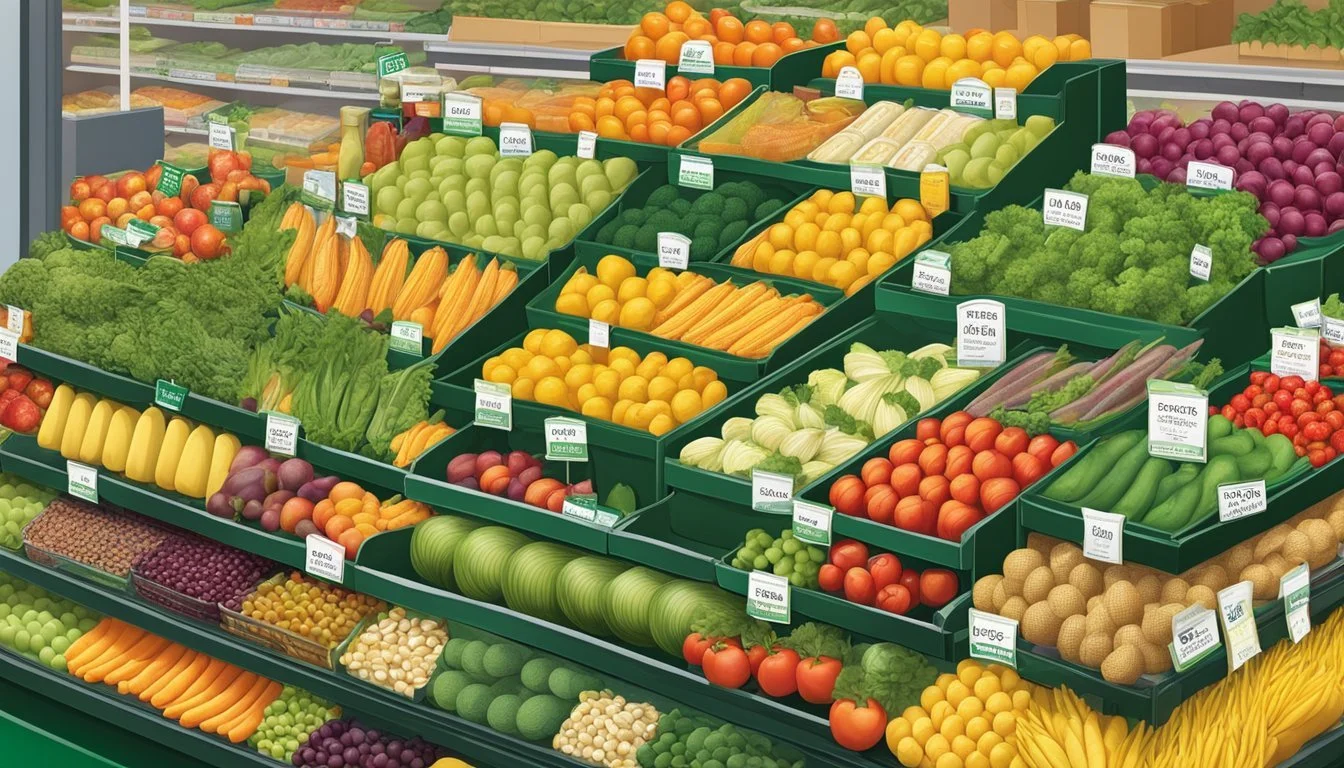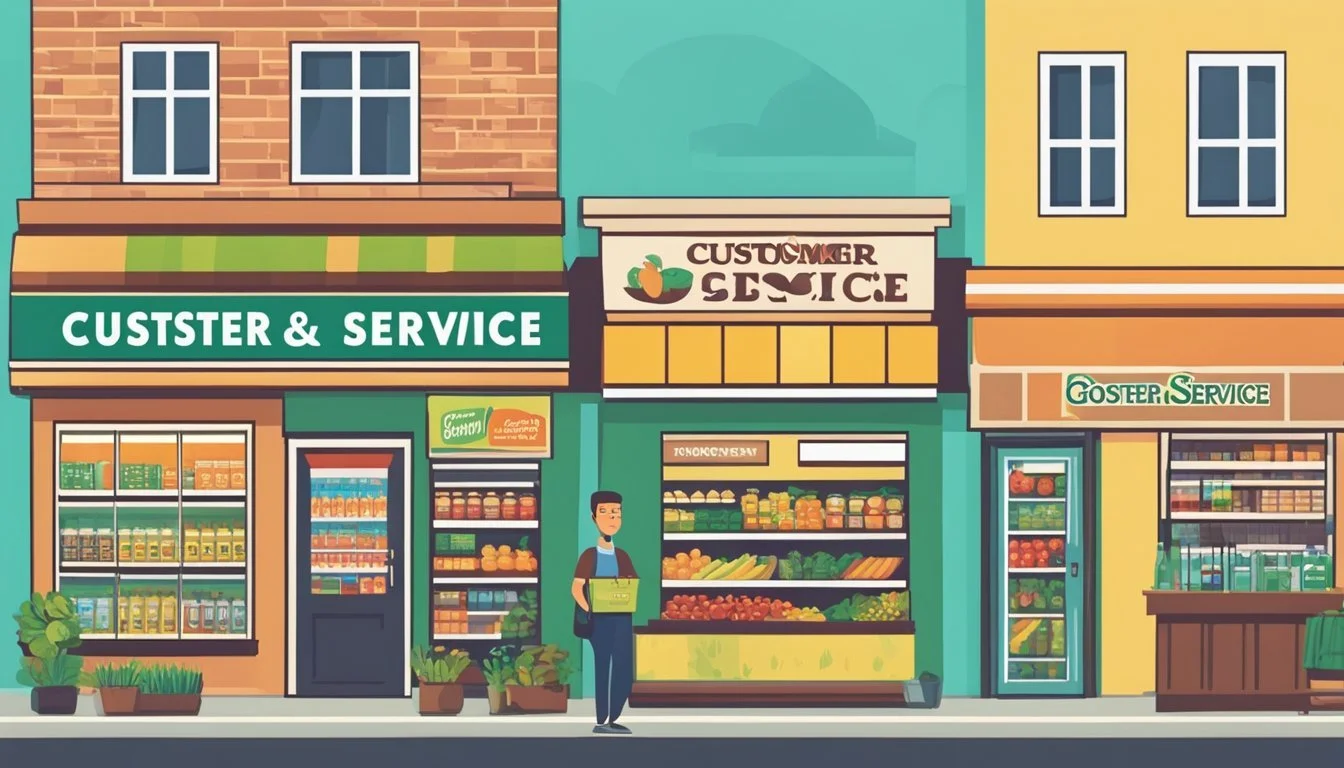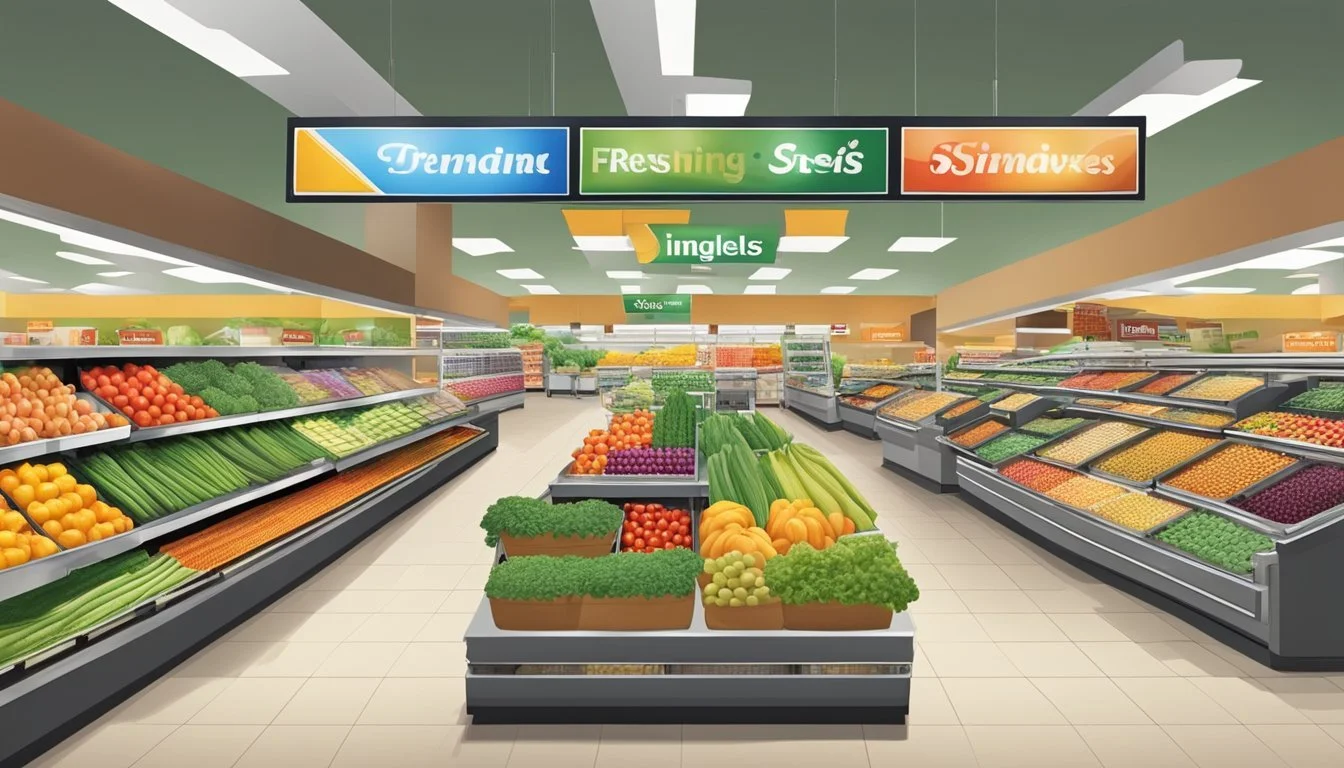Giant Food vs Ingles Markets
A Comprehensive Comparison of Prices, Selection, and Service
When it comes to grocery shopping, choosing the right store can make a significant difference in your overall experience and budget. Giant Food and Ingles Markets are two popular grocery chains that offer a range of products and services to their customers. Both stores have their strengths and weaknesses, catering to different consumer preferences and needs.
Giant Food generally provides a better overall shopping experience compared to Ingles Markets, with a wider selection of products and more competitive prices. Giant Food's larger stores often feature more diverse departments, including expanded produce sections, in-store pharmacies, and specialized areas for organic and international foods. Additionally, Giant Food typically offers more robust loyalty programs and digital coupons, allowing customers to save money on their purchases.
Ingles Markets, while smaller in scale, has its own appeal. The chain is known for its focus on local and regional products, often sourcing from nearby farmers and producers. This approach can result in fresher produce and unique items not found in larger chains. Ingles Markets also tends to have a more personal, community-oriented atmosphere, which some shoppers prefer over the more impersonal feel of larger supermarkets.
Company Profiles
Giant Food and Ingles Markets are two prominent grocery chains serving different regions of the United States. Each has a unique history and market presence that shapes their offerings and customer base.
Giant Food: An East Coast Staple
Giant Food operates primarily along the East Coast, with a strong presence in the Mid-Atlantic region. Founded in 1936, the company has grown to over 160 stores across Maryland, Virginia, Delaware, and Washington D.C. Giant Food is known for its wide selection of products, including fresh produce, meats, and bakery items.
The chain emphasizes customer service and community involvement. Giant Food stores often feature pharmacies, fuel stations, and online ordering options. The company has invested in modernizing its stores and expanding its private label offerings to compete with other major retailers.
Ingles Markets: Southern Grocery Presence
Ingles Markets focuses on the Southeastern United States, particularly in the Appalachian region. Founded in 1963, the company now operates 198 supermarkets across six states. Ingles Markets is headquartered in Black Mountain, North Carolina.
The chain is known for its emphasis on fresh, local products and competitive pricing. Many Ingles stores include in-store pharmacies, fuel centers, and Ingles Advantage Card loyalty programs. The company is publicly traded on NASDAQ under the ticker symbol IMKTA.
Ingles Markets has maintained a strong regional identity, catering to the preferences of Southern shoppers. The company's growth strategy has focused on expanding within its existing markets rather than spreading to new regions.
Store Locations and Convenience
Giant Food and Ingles Markets differ in their store locations and accessibility. Both chains prioritize customer convenience, but their approaches to store layout and shopping experience vary.
Accessibility and Store Distribution
Giant Food operates primarily in the Mid-Atlantic region, with stores in Maryland, Virginia, Delaware, and Washington D.C. The chain focuses on urban and suburban areas, placing stores in high-traffic locations near population centers. This strategy ensures easy access for many customers.
Ingles Markets, on the other hand, concentrates on the Southeastern United States. Their stores are found in states like North Carolina, South Carolina, Georgia, Tennessee, Alabama, and Virginia. Ingles targets smaller cities and rural areas, filling gaps left by larger chains.
Giant Food's urban focus means shorter travel times for many shoppers. Ingles Markets serves communities that might otherwise lack nearby grocery options.
Shopping Experience and Store Layout
Giant Food stores typically feature wide aisles and clear signage. The layout emphasizes efficiency, with logical product groupings. Many locations offer modern amenities like self-checkout stations and dedicated areas for online order pickup.
Ingles Markets stores often have a more traditional feel. They incorporate local products and regional specialties into their offerings. The chain is known for its large produce sections and in-store delis.
Both retailers aim to create a pleasant shopping environment. Giant Food's stores tend to have a sleek, contemporary design. Ingles Markets focuses on a homey, community-oriented atmosphere.
Store size varies for both chains, but Giant Food locations are generally larger. This allows for wider product selections and more spacious layouts. Ingles Markets stores, while sometimes smaller, often include additional services like in-store pharmacies and fuel centers.
Product Range and Quality
Giant Food and Ingles Markets offer diverse product selections to cater to various customer needs. Both chains prioritize quality across their departments, but there are some key differences in their offerings and specialties.
Fresh Produce and Organic Offerings
Giant Food provides an extensive selection of fresh produce, including a wide array of organic options. The chain partners with local farmers to ensure freshness and support regional agriculture. Their organic section features seasonal fruits and vegetables, with clear labeling for easy identification.
Ingles Markets also emphasizes fresh produce, with a focus on locally sourced items when possible. Their organic offerings are growing, though not as extensive as Giant Food's. Ingles' produce department is known for competitive pricing and frequent sales on popular items.
Both stores maintain high standards for produce quality, regularly rotating stock to ensure freshness. Customers can find a good variety of conventional and organic fruits and vegetables at either chain.
Meats and Dairy: Assessing Quality
Giant Food's meat department offers a range of options, from value-priced cuts to premium selections. Their butchers provide custom cuts upon request. The chain's dairy section includes both national brands and private-label products, with an increasing focus on organic and plant-based alternatives.
Ingles Markets prides itself on its meat quality, featuring a butcher counter in many locations. They offer a selection of locally sourced meats when available. Ingles' dairy department stocks a variety of products, including regional brands and specialty items.
Both chains maintain strict quality control measures for their meat and dairy products. Giant Food tends to have a broader selection of organic and alternative options in these categories.
Frozen Foods and Specialty Sections
Giant Food's frozen food aisles feature a wide range of options, from budget-friendly basics to premium prepared meals. Their specialty sections include international foods, gluten-free products, and an expanding array of plant-based alternatives.
Ingles Markets offers a solid selection of frozen foods, with a mix of national brands and private-label options. Their specialty sections, while not as extensive as Giant Food's, still provide a good variety of dietary-specific and international products.
Both chains regularly update their frozen and specialty offerings to reflect current food trends and customer preferences. Giant Food generally has a larger selection in these areas, particularly in terms of health-focused and specialized diet products.
Pricing and Cost-Saving Opportunities
Giant Food and Ingles Markets employ different pricing strategies and offer various ways for customers to save money. Their approaches to everyday prices, sales events, and loyalty programs can significantly impact shoppers' grocery bills.
Everyday Prices and Sale Events
Giant Food generally maintains competitive everyday prices on staple items. The chain runs weekly sales and promotions, often featuring seasonal products. Giant's circular ads highlight discounted items across departments.
Ingles Markets focuses on keeping prices low across the board. The company negotiates with suppliers to offer competitive pricing on national brands. Ingles also promotes its Laura Lynn store brand as a budget-friendly alternative.
Both stores hold periodic stock-up sales on pantry essentials. Giant Food tends to have more frequent short-term deals, while Ingles offers longer-lasting discounts on select items.
Loss Leaders and Member Savings
Giant Food uses loss leaders - deeply discounted popular items - to draw customers into stores. These deals often require a Giant Card membership. The loyalty program provides personalized coupons and gas rewards.
Ingles Markets takes a different approach, focusing on consistent low prices rather than dramatic markdowns. The Ingles Advantage Card offers modest discounts on select items and fuel savings at Ingles Gas Express locations.
Giant's digital coupons provide additional savings opportunities. Ingles emphasizes its everyday low prices, with fewer digital offerings but some in-store coupons available.
Customer Service and Shopping Support
Giant Food and Ingles Markets both prioritize customer satisfaction through their service offerings and support systems. Their approaches to assisting shoppers differ in some key areas.
Staff Assistance and In-Store Guidance
Giant Food employs trained staff members to help customers navigate their stores. Associates are stationed throughout departments to answer questions and provide product recommendations. The store offers free samples and cooking demonstrations to aid shoppers in making informed choices.
Ingles Markets focuses on a friendly, small-town atmosphere. Staff members often know regular customers by name. The company emphasizes personalized service, with employees trained to guide shoppers to specific products. Ingles also provides special assistance for elderly or disabled customers, including help with reaching items or carrying groceries to vehicles.
Checkout Efficiency and Return Policies
Giant Food utilizes self-checkout kiosks to reduce wait times. The store also implements a "3's a crowd" policy, opening new registers when lines exceed three customers. Their return policy allows unopened items to be returned within 30 days with a receipt.
Ingles Markets maintains a more traditional checkout system. Cashiers are trained to be efficient and courteous. The store offers a "10 items or less" express lane for quick trips. Ingles' return policy is flexible, allowing returns on most items within 30 days, even without a receipt in some cases.
Health and Sustainability
Giant Food and Ingles Markets both make efforts to address health and sustainability concerns. Their approaches differ in key areas like animal welfare, meat sourcing, and environmental practices.
Animal Welfare and Meat Sourcing
Giant Food partners with suppliers who follow strict animal welfare guidelines. Their meat products come from farms that prioritize humane treatment and avoid growth hormones. The chain offers a selection of organic and antibiotic-free options.
Ingles Markets sources meat from regional suppliers when possible. They provide some organic and natural meat choices, though their selection may be more limited than Giant Food's. Ingles emphasizes fresh, quality meats but provides less information about specific animal welfare practices.
Both stores offer vegetarian and plant-based protein alternatives to cater to health-conscious consumers.
Environmental Impact and Sustainable Practices
Giant Food implements several eco-friendly initiatives. They use energy-efficient lighting and refrigeration in stores. The company has a food waste reduction program, donating unsold items to local food banks.
Ingles Markets focuses on local sourcing to reduce transportation emissions. They've installed solar panels on some store roofs and distribution centers. The chain also runs a recycling program for plastic bags and packaging materials.
Both retailers offer reusable shopping bags and encourage customers to bring their own. Giant Food and Ingles have expanded their organic produce sections in recent years, supporting more sustainable farming practices.
Comparative Analysis
Giant Food and Ingles Markets each have distinct strengths and weaknesses that impact their market positions. Consumer rankings and industry studies provide insights into how these chains measure up.
Strengths and Limitations: Giant Food vs. Ingles Markets
Giant Food excels in urban and suburban areas, offering a wide selection of national brands and private label products. Its loyalty program provides competitive discounts and personalized offers. The chain's e-commerce platform facilitates convenient online ordering and delivery options.
Ingles Markets shines in rural and small-town settings. The company focuses on fresh produce and locally sourced items. Ingles operates its own dairy, ensuring a steady supply of milk products. Their in-store pharmacies and fuel centers add convenience for shoppers.
Giant Food struggles with higher prices compared to some competitors. Store layouts can be inconsistent across locations. Ingles Markets faces challenges in expanding to larger metropolitan areas. The chain's digital presence lags behind industry leaders.
Consumer Rankings and Market Position
Recent consumer surveys rank Giant Food higher in product quality and customer service. A 2023 study of grocery chains in the U.S. placed Giant Food in the top 20% for overall satisfaction. Ingles Markets scored well in community engagement and local product offerings.
Giant Food holds a stronger market share in the Mid-Atlantic region. Ingles Markets dominates in parts of the Southeast, particularly in North Carolina and Georgia. Both chains face intense competition from national retailers and discount stores.
Industry rankings show Giant Food performing better in sustainability initiatives. Ingles Markets receives praise for its support of local economies. Neither chain tops lists for lowest prices, but both maintain loyal customer bases in their core markets.
Final Verdict and Recommendations
Giant Food and Ingles Markets both offer quality grocery shopping experiences, but they have distinct strengths. Giant Food excels in urban areas with a wide product range and convenient locations. Ingles Markets shines in rural communities, emphasizing fresh produce and local goods.
For budget-conscious shoppers, Ingles Markets often provides competitive prices, especially on produce. Giant Food, however, frequently offers better deals on packaged goods and household items.
Giant Food's loyalty program tends to be more robust, offering personalized discounts and gas savings. Ingles Markets' rewards program is simpler but still provides value to regular customers.
Store layouts differ significantly. Giant Food stores are typically larger with more diverse departments. Ingles Markets focuses on a straightforward, easy-to-navigate layout.
Both chains prioritize customer service, but Ingles Markets often receives higher marks for its friendly, small-town atmosphere. Giant Food's larger stores can sometimes feel less personal.
Ultimately, the choice depends on individual needs:
Choose Giant Food for:
Wider selection of international foods
More extensive prepared meals section
Better urban accessibility
Opt for Ingles Markets for:
Fresher, locally-sourced produce
Stronger community connections
Generally lower prices on fresh items
Consider trying both stores to determine which best suits your shopping preferences and location.









